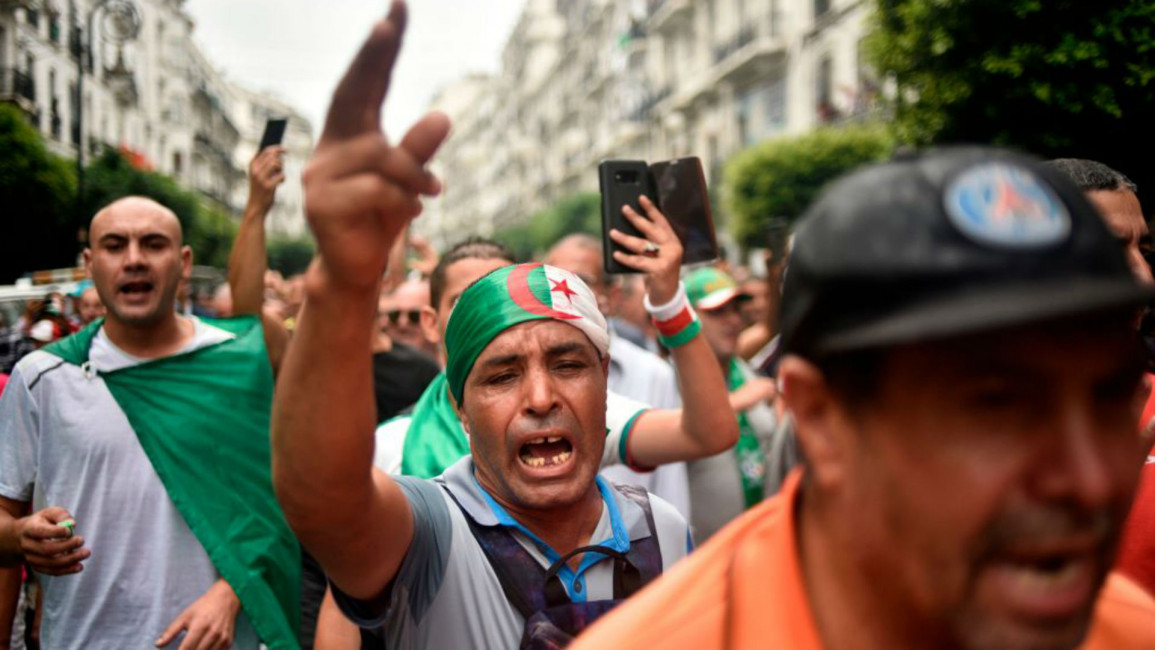Algerians take to streets to oppose presidential elections
Rallies in February calling for the resignation of president Abdelaziz Bouteflika in April, after 20 years in charge, led to his downfall, but the street protests have continued every Friday since demanding key regime figures step down.
Activists also want an overhaul of political institutions before any polls take place, believing that any election under the current framework will only reinforce the status quo.
"Those close to Bouteflika are still in power and an election in these conditions is simply a masquerade", engineer Lyes Mesbah told AFP.
The army has effectively taken over the running of the country and is calling for speedy elections to replace Bouteflika. Army chief General Ahmed Gaid Salah has repeatedly insisted that polls be held before year-end.
Protesters on Friday in the capital Algiers braved the floods of the day before and came out in force, calling for a delay in the polls.
Last week, Gaid Salah called for an electoral college to be summoned on 15 September, so that an election could be held within 90 days.
This week, parliament passed two bills that would facilitate the announcement of a vote.
Justice Minister Belkacem Zeghmati presented the bills on Wednesday, with both legislative chambers passing them within two days.
Opposition parties in the People's National Assembly boycotted the session in which the bills were passed.
The first bill proposed the creation of an "independent" election authority, which would receive "all prerogatives of public authorities - namely on administrative electoral matters".
It would be responsible for organising, monitoring the electoral process and "overseeing all its stages, from the convening of the electoral body to the announcement of the preliminary results", according to Zeghmati.
The second was a revision of the existing electoral law, meant to guarantee "transparency, regularity and neutrality" of elections.
Presidential polls planned for 4 July were postponed due to a lack of viable candidates, plunging the country into a constitutional crisis as the 90 day mandate for the interim head of state - Abdelkader Bensalah - expired in early July.
The army's high command has rejected any solution to the crisis other than presidential elections "in the shortest possible time".



